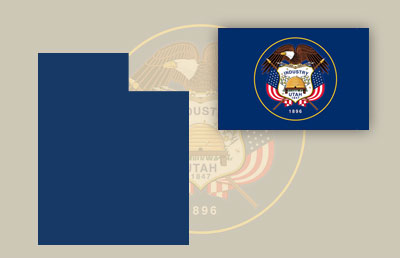Utah Updates Notaries Public Reform Act

The State of Utah has recently amended several provisions of the Notaries Public Reform Act, with an effective date of May 8, 2017.
The updated law discusses the process and requirements for becoming a notary public in Utah. To be eligible for a notarial commission, an applicant must be at least eighteen years old, and must be a legal resident of the state for at least 30 days prior to his or her application. He or she must be able read, write, and understand English, and be a United States citizen or have permanent resident status under the Immigration and Nationality Act.
To apply for a notarial commission, an applicant must submit an application to the lieutenant governor. This application must include the individual’s name (as it will appear on the commission), his or her residential and business addresses, phone number, and date of birth. The application must also include an affirmation that the individual meets the aforementioned requirements, and must describe all issuances, denials, revocations, or suspensions of a notarial commission or any other professional license, even if not in the state of Utah. Finally, the application must include an indication that the applicant passed the required examination, and must include the application fee established by the lieutenant governor.
The lieutenant governor is permitted to deny an application for a notarial commission under certain circumstances. These include the conviction of a crime involving dishonesty, or a revocation, suspension, or restriction of a notarial commission or other professional license (including in another state), or an applicant’s official misconduct while acting in the capacity of a notary. In addition, if a notary fails to maintain a permanent residency in the state of Utah during the term of his or her commission, he or she must resign his or her commission. The lieutenant governor may also deny an application if an applicant fails to pass an examination. All applicants that apply for a notarial commission must pass an examination approved by the lieutenant governor.
Once the lieutenant governor commissions a notary, he or she may perform notarial acts in any part of the state for a term of four years, unless he or she resigns or the commission is revoked or suspended. If a notary’s commission expires and he or she wishes to obtain a new commission, he or she must submit a new application.
The updated regulations also discuss the requirements for a notary’s official signature and seal. When completing a notarial act, a notary must sign his or her name on the notarial certificate exactly as it appears in the notarial commission. Each notary must keep an official notarial seal that uses purple ink, and which may not be used by any other person. Upon the resignation, revocation, or the expiration of his or her commission, this seal must be destroyed. When a notary receives a new commission, or changes his or her name of record, he or she must obtain a new seal.
The seal must produce a sharp, legible, ink impression that includes that notary’s name as it appears on the commission, his or her commission number, a rectangular border up to one inch by two and one-half inches, and the phrases “notary public,” “state of Utah,” and “my commission expires on [date].” The notary must affix the seal near his or her official signature.
The full text is available at:
https://le.utah.gov/~2017/bills/static/HB0320.html
Zachary Pearlstein, JD, is a Regulatory Compliance Director with CLA's Mortgage Advisory Division. He joined CLA on January 1, 2014, as part of its acquisition of Bankers Advisory, Inc. Zachary oversees Mortgage Advisory's regulatory compliance team, which focuses on federal and state compliance, fair lending, and the Home Mortgage Disclosure Act (HMDA). He is a graduate of Brandeis University and earned his juris doctor at Suffolk University Law School. He is admitted to the Massachusetts Bar.

Comments are closed.